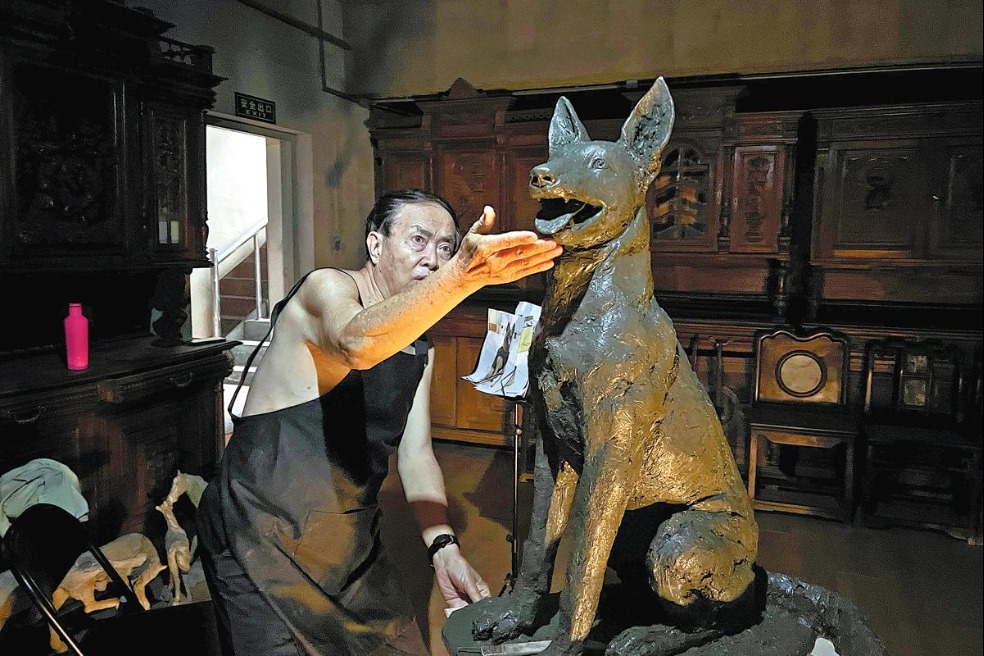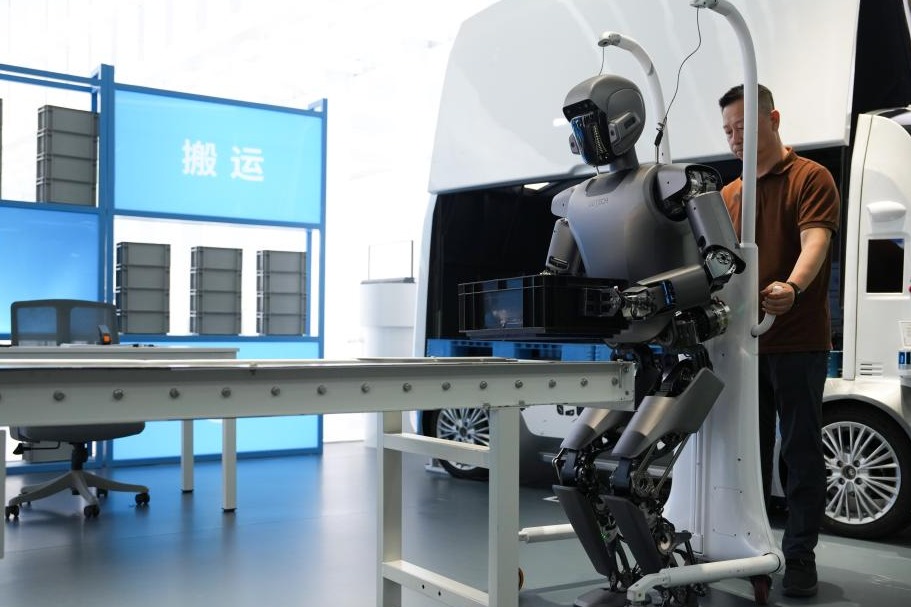Game for change

 |
| A woman holds a Kinect console at a shop in Gulou Dongdajie in downtown Beijing, a 1,098-meter-long street frequented by console game enthusiasts who travel there to buy the latest on-screen craze from the many specialist shops. The road that leads up to the tourist site of the Drum and Bell Towers is known as the capital's console game street. Cui Meng / China Daily |
The console game business in Beijing’s Gulou Dongdajie is facing the challenges of the times
For more than 600 years, the ancient Drum and Bell Towers north of the Forbidden City informed Beijing residents of the time. Although their roles as the official chronometer of China ended in 1924, when the last emperor of the Qing Dynasty (1644-1911) was driven out, the two huge edifices now preside over something far more up to date.
The area is frequented by console game enthusiasts who go there to buy the latest on-screen craze from the many specialist shops in nearby streets - especially the 1,098-meter-long Gulou Dongdajie. The road that leads up to the tourist site is known as the capital's console game street.
Before the 1990s, there were only a few shops scattered around the Gulou area that sold the games and associated hardware. But as their popularity rose, so did the number of customers and more shops began to spring up.
"Our shop opened at 9 am and I usually found several people already waiting at the door," says the owner of Kamu Lewu, the oldest console shop in Gulou, who gave his family name as Wang.
It was around the early 1990s when Nintendo Co Ltd's Family Computer, also known as Famicom, swept across the country, says Wang, who began to sell console games in Beijing in the late 1980s.
The computer, which sparked a two-decade era of Japanese console dominance, enjoyed similar success in China and sparked a nationwide console game craze.
"People had little entertainment at that time, so the machines became blockbusters," Wang says. "Once, right before a holiday, everything sold out apart from one small game console."
Wang recalls that a friend of his often stocked a truck full of goods every two or three days and sold them in his shop in Gulou and elsewhere in Beijing. That was around 1993, when the popularity of playing games using consoles was increasing exponentially.
"I was still at elementary school and, every day after school, the console game shops were full of children like me. There were many shops of this kind in the street," says Wei Xiaoyu, the 26-year-old founder of Beijinglife.org, a website that features articles about Gulou Dongdajie.
Wang says the peak for console game shops was between 1999 and 2000 when there were as many as 80 in the area.
Yin Yan, who is now in his 30s, is one of the many who entered the console game business in the 1990s.
"When I was a child, my dream was that my brother-in-law would open a console game shop but it ended up being me who did it," says Yin, who began his business 14 years ago.
Yin says the "golden age" of console games is over and business is getting harder and harder.
He says his shop in Gulou can earn a profit of about 200,000 yuan (22,000 euros) a year. It was much easier to generate good revenues seven or eight years ago than it is now. In the past, he could earn about 400 yuan by selling a console, while now he earns only 50 to 100 yuan from a machine sold to customers.
"The competition is just too fierce," he says. "More people entered the industry and in order to win more customers, some began to offer unreasonably low prices, which had a bad effect on business."
Counterfeit and low-quality products followed the price war, further exacerbating the situation.
The rise of Zhongguancun, Beijing's largest electronics trading market, made life for Gulou's console game shop owners even harder because of the hundreds of electronics stores that opened there.
Though Gulou is still known as the most famous area for console games in Beijing, it is no longer the only option.
The rising costs of running the business also came as a burden to console game shop owners.
"Everything is more expensive, such as house and food prices, and you have to pay higher salaries, so what you take home is very limited," says Kamu Lewu's Wang.
He says the profit margin in the industry is only about 3 to 5 percent. Many console game sellers in Gulou packed in their businesses as a result.
The number of console game shops in the Gulou area has decreased to about 30. They are mainly located in the streets of Gulou Dongdajie, Gulou Xidajie, and Di'anmen Waidajie.
However, Yin vows to stay in business.
"Hardcore players will still come to Gulou," Yin says. "And the market is growing anyway. We earned more from a machine in the past, but demand was limited at that time. Now, more and more people play console games."
Most of his shop's customers are regulars who have been playing console games for a long time, he says.
The Chinese government bans imports of game consoles and related accessories as it thinks products of this kind may pose potential harm to the young. However the gray market for console games is considerable.
The country's handheld and video game console market is expected to be worth $350 million (257 million euros) by 2011, with a compound annual growth rate of 9.8 percent from 2006, and shipment is expected to increase by 19.6 percent to 3.6 million units over the same period, according to research company International Data Corporation.
The game consoles in the Chinese gray market are mostly imported illegally or supplied by console makers who buy proprietary chips used in the actual systems. Sellers in Gulou usually get the products from Hong Kong or Shenzhen through wholesalers and then sell to end customers.
"It's tough, but we are making money anyway," Yin says, adding that most console game sellers generate revenues from regular price rises and falls in the industry. For example, a machine is worth an additional 200 to 300 yuan after it is "jailbroken" by having any restrictions on use imposed by the manufacturer removed.
Gulou Dongdajie, although known as a major center for console games in Beijing, has also become home to an increasing number of musical instrument stores and cartoon, animation and toy shops.
Today's Top News
- Xi chairs CPC leadership meeting to review work regulations on decision-making, deliberation, coordination
- China's ancient dreams make for modern space triumphs
- CPC has more than 100.27m members
- Flexible programs build diverse talent pool
- China opposes deals harming its interests
- CPC's governance highly effective, democratic






























